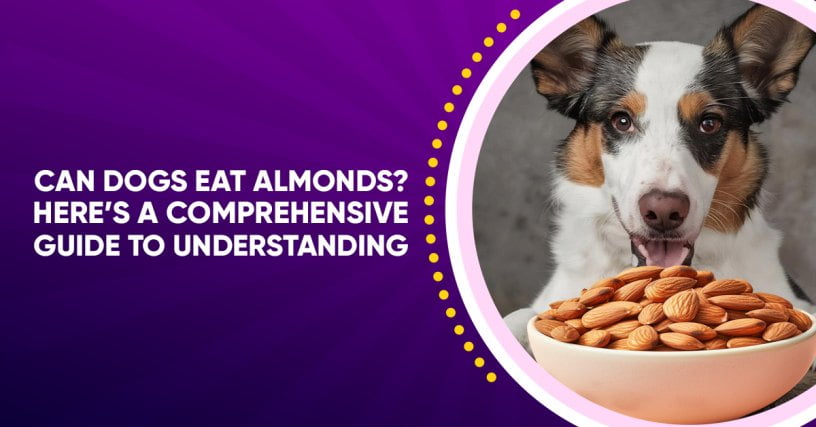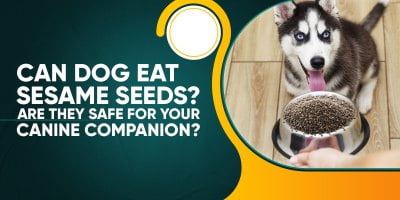As a pet owner, it’s only natural to want to share your favorite snacks with your furry friend. Almonds, with their crunchy texture and savory taste, are a popular snack among humans. But when Fido gives you those pleading eyes, you may wonder, “Can dogs eat almonds?” In this article, we’ll explore the facts, risks, and alternatives to feeding almonds to dogs.
Table of contents
Estimated reading time: 4 minutes
Understanding Almonds and Their Nutritional Profile
Almonds are a highly nutritious nut, well-loved by humans for their multitude of health benefits. They’re packed with essential nutrients like fiber, protein, healthy fats, vitamins, and minerals. However, the key question remains: Are these benefits translatable to our canine companions?
While almonds aren’t toxic to dogs in the way that some foods like chocolate or grapes are, they aren’t necessarily beneficial either. Dogs have different dietary requirements and digestive systems compared to humans. The nutrients found in almonds might be beneficial to us, but they don’t necessarily meet the nutritional needs of dogs.
Potential Risks of Dogs Consuming Almonds
The primary concern with dogs eating almonds, or any nut, revolves around their size and hardness. Almonds pose a significant choking hazard, especially for small dogs. Moreover, their hard texture can cause digestive distress and even blockages in the esophagus, stomach, or intestines.
Furthermore, almonds have a high-fat content. While dietary fat is essential for dogs, too much of it, especially from non-animal sources, can lead to obesity and potentially even pancreatitis, a severe and painful inflammatory condition of the pancreas.
Lastly, many almonds available in the market are salted or flavored, which can pose additional risks. High sodium content can lead to salt toxicity, while artificial flavorings can cause further gastrointestinal upset.
Almond Allergies in Dogs
While not common, dogs can indeed develop an allergy to almonds. If your dog has ingested almonds and is showing symptoms like itching, swelling, difficulty breathing, or other signs of discomfort, it’s crucial to seek veterinary attention immediately.
The Issue with Almond Milk and Dogs
Almond milk might seem like a safer alternative to whole almonds, but it’s not necessarily a better choice. Many almond milk brands contain added sugars, which are unhealthy for dogs, and some may contain artificial sweeteners, like Xylitol, which is highly toxic to dogs. Therefore, it’s best to avoid giving almond milk to your pet.
Safe Snacking: Healthier Alternatives to Almonds for Dogs
Given the potential risks associated with almonds, it’s worth considering healthier, safer snack alternatives for your dog. Many fruits and vegetables, like apples (without seeds), carrots, and cucumbers, are safe for dogs and provide beneficial nutrients.
Other dog-safe snacks include plain, cooked chicken, rice, and certain types of fish, like salmon. Always remember, though, treats and snacks should make up no more than 10% of your dog’s daily caloric intake.

When to Contact Your Vet
If your dog has consumed a few almonds, there’s no need to panic immediately. However, watch out for signs of gastrointestinal distress, including vomiting, diarrhea, loss of appetite, and lethargy. If your dog shows any of these symptoms, or if you know they’ve eaten a significant quantity of almonds, it’s best to contact your vet as soon as possible.
Conclusion
To sum up, while your dog might be interested in the crunchy appeal of almonds, they’re not the most suitable snack for your canine companion. Even though almonds aren’t inherently toxic for dogs, the potential risks associated with them, such as choking, digestive distress, and pancreatitis, make them less than ideal.
Moreover, flavored or salted almonds could introduce additional health risks, and almond milk, especially those with added sugars or artificial sweeteners, should also be avoided.
Remember, moderation is key when it comes to giving your dog any kind of treat or snack. Treats should only make up a small portion of their overall diet, with the bulk consisting of high-quality, nutritionally balanced dog food.
In the end, our furry friends rely on us to make the best choices for their health and well-being. When in doubt, always consult with your vet about any dietary changes or concerns. They can provide guidance tailored to your dog’s specific needs and health status. With the right care and diet, you can ensure your canine companion stays happy and healthy for many years to come.
Play A Simple Airplane Game With Your Dog
Read More:





